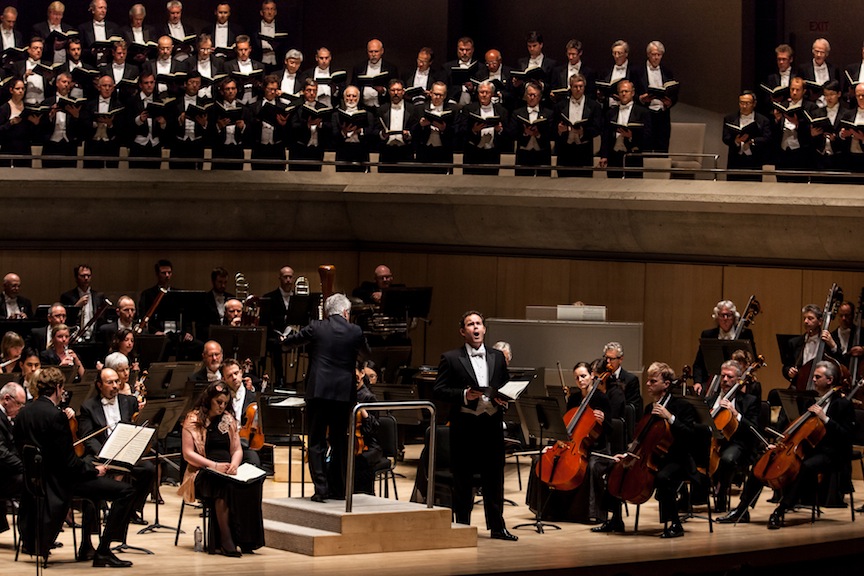
The world is awash in great recordings, so it’s easy to think that musical masterpieces are bulletproof — until one hears a less than endearing interpretation. As the Toronto Symphony Orchestra demonstrated on Wednesday night, technical prowess does not begin to tell the story.
- Classical Music 101: What Does A Conductor Do? - June 17, 2019
- Classical Music 101 | What Does Period Instrument Mean? - May 6, 2019
- CLASSICAL MUSIC 101 | What Does It Mean To Be In Tune? - April 23, 2019
I sat in Roy Thomson Hall listening to Johannes Brahms’ 1868 monument, the German Requiem, wondering over and over again what combination of details was leaving me so unmoved by a piece of music that has had me in its grip as a listener as well as music-maker for more than 30 years.
The Toronto Mendelssohn Choir, out in full force, sang with its characteristic mix of subtlety, power and precision. The Toronto Symphony players (with woodwinds and brass on risers, all bizarrely crammed into one corner of the stage with the piano, organ console and harp) were in great form.
Soprano soloist Klara Ek was okay. Baritone Gerald Finley was a marvel of strength and musicality.
But the overall sound repeatedly failed to lift off the stage. The warm and prolonged applause from the somewhat sparse house indicated that I may have been in a minority to think that music director Peter Oundjian had not figured out how to endow the music with the sweep that it needs to carry off the composer’s message of redemption for the faithful.
This was not a musical message of redemption, but of long, unrelenting work, punctuated by the odd listless moment of repose.
Oundjian concentrated too much on minutiae buried in the middle of the orchestration, and too little effort ensuring that a soaring melody from the choir would be mirrored in the orchestral strings — and vice versa.
It was still beautiful music, but in an abstract rather than visceral sense.
The programme opened with another elegiac piece, the five-sonnet cycle, Songs of Love and Sorrow, by the late American composer Peter Lieberson. The work was written for Finley, and it’s impossible to imagine anyone else doing as fine a job for the Canadian premiere of these verses about love, the sky, the stars and nocturnal fancies.
Lieberson’s score bristles with all sorts of filigree — for a woodwind here, a cello there, a French horn there — while, like the Brahms Requiem, possessing a need for inner momentum.
Here, also, Oundjian liked to pause and smell the flowers a bit too much, but the force of Finley’s deep interpretation won the day.
The programme repeats on Thursday and in a more casual format, on Saturday. Details here.
John Terauds
- Classical Music 101: What Does A Conductor Do? - June 17, 2019
- Classical Music 101 | What Does Period Instrument Mean? - May 6, 2019
- CLASSICAL MUSIC 101 | What Does It Mean To Be In Tune? - April 23, 2019



